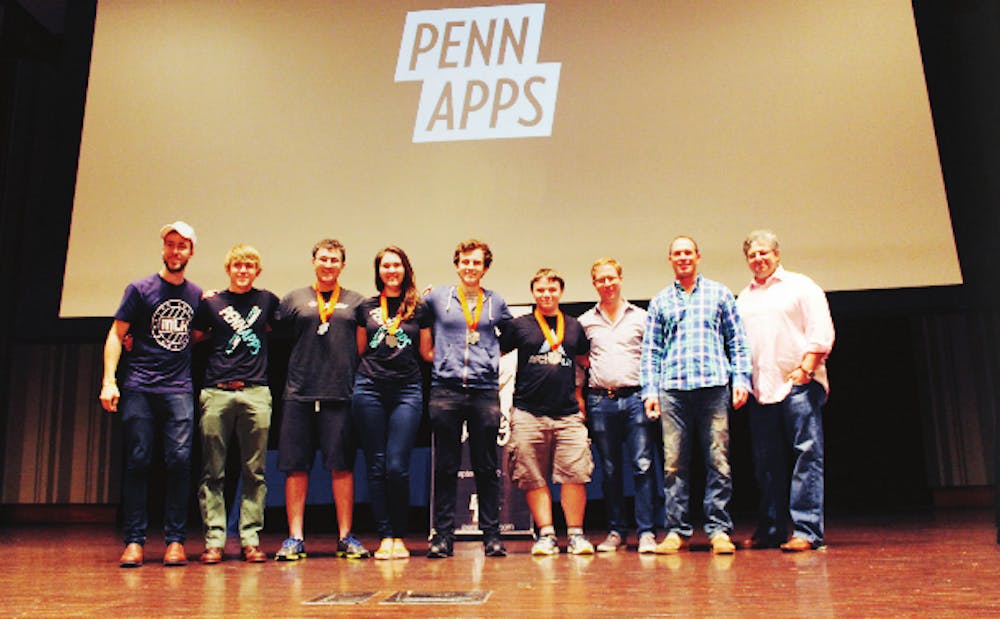
Read this article in one tab, build an app for your iPhone in another. That’s the vision this year’s PennApps winners are striving to bring to fruition.
The winning team included Carnegie Mellon University freshmen Avi Romanoff and Joe Doyle, senior Maggie Bignell and developer Zach Latta.
The winning app, called Fuji, allows users to stream iPhone simulations directly from a MacIntosh computer, and can be run in any browser that supports HTML5. “Fuji is a web [Integrated Development Environment] that lets anyone with a modern web browser build, iterate and run iPhone apps,” Latta said at PennApps’s closing ceremonies.
Fuji allows these apps to be run on Android, Chromebook or any device that accesses the internet.
With their hack, the team wanted to solve a common problem they have observed among coders.
“Day in and day out, I see students run into the exact same problems,” Latta said. “It’s easy to write your first line of code, but it’s exponentially more difficult to actually run that code, especially when you’re dealing with platforms like iOS.”
Fuji will help to eliminate these problems for student coders as well as make Apple software accessible to a much wider range of consumers.
“With Fuji, we have taken something with a very high barrier of entry — iOS programming — and made it very accessible to a completely new subset of students out there today,” Latta said. As the founder of a nonprofit known as HackEDU, which helps high school students start and lead programming clubs at their school, Latta has worked with low-income students he believes could benefit from Fuji.

PennApps entries are judged on four different criteria: originality, technical difficulty, polish or usability and usefulness.
“The first place winner met every criteria,” said David Pakman, one of the judges and a 1991 Engineering School graduate. “We loved the approach that this team took to solving a problem that is useful for all ranges of developers.”
The second place team, Magic Board, built a hands-free, electric longboard that allows the user to control their longboard, a type of skateboard, via a controller — eliminating the need for leg muscles in order to board down the street.
Quitli, an electronic pin that monitors bad habits like smoking or cracking your knuckles, was awarded third place. The pin uploads updates to Facebook to leverage the pressure of social media to help users meet wellness goals.
The first place prize includes $5,000 and several other prizes. This weekend’s event marked the 10th PennApps. The next hackathon will be held at Penn from Jan. 16 to 18.
The Daily Pennsylvanian is an independent, student-run newspaper. Please consider making a donation to support the coverage that shapes the University. Your generosity ensures a future of strong journalism at Penn.
DonatePlease note All comments are eligible for publication in The Daily Pennsylvanian.




